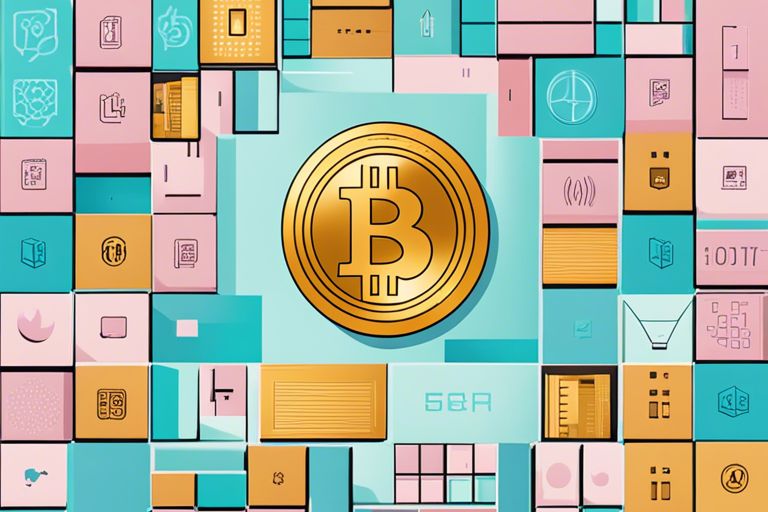What Makes NFTs Such A Coveted Commodity Among Crypto Enthusiasts?
Many in the world of cryptocurrency are captivated by the allure of Non-Fungible Tokens (NFTs), unique digital assets that have taken the market by storm. With the ability to represent ownership of digital or physical items, NFTs offer a level of exclusivity and authenticity that traditional cryptocurrencies do not. This article explores the reasons behind the skyrocketing popularity of NFTs, shedding light on why they have become a highly sought-after commodity among crypto enthusiasts.
The Unique Characteristics of NFTs
Ownership and Scarcity
Your ownership of an NFT is secured by blockchain technology, making it immutable and unique. The scarcity of NFTs is guaranteed by their inherent design, ensuring that each digital asset is one-of-a-kind and cannot be replicated.
Decentralized and Transparent
The decentralized nature of NFTs means that their ownership and transaction history are openly available on the blockchain for anyone to view. This transparency instills trust in the authenticity and provenance of the digital assets.
On top of that, the decentralized nature of NFTs also means that there is no central authority controlling these digital assets. This ensures that ownership is secure and cannot be manipulated or censored by any single entity, providing a sense of autonomy and freedom to NFT holders.
The Role of Blockchain Technology
Immutable Ledger
With blockchain technology, every transaction is recorded on a public ledger that is transparent and immutable. This means that once information is entered, it cannot be altered or deleted, ensuring trust and security in the system.
Smart Contracts and Automation
On the other hand, smart contracts on the blockchain enable automatic execution of predefined actions when certain conditions are met. This feature streamlines processes, reduces the need for intermediaries, and minimizes the risk of fraud.
Contracts powered by blockchain technology allow for efficiency, transparency, and trust in transactions, revolutionizing the way agreements are made and executed. They have the potential to reshape entire industries by automating complex processes in a secure and reliable manner.

The Art and Collectibility of NFTs
Digital Art and Rarity
Assuming you have a digital artwork that is unique, the allure of NFTs lies in their ability to certify the ownership and authenticity of these creations. The concept of rarity in the digital world adds an exclusive and prestigious element to owning NFTs.
Verifiable Provenance
To understand the value of NFTs, one must acknowledge the importance of verifiable provenance. Rarity in the NFT space is not solely about scarcity but also about the ability to confirm the history and authenticity of a digital asset. This transparency provides buyers with confidence in their investments.
NFTs are built on blockchain technology, ensuring that each transaction is recorded and cannot be altered, establishing a secure and transparent environment for buyers. This feature eliminates the risk of counterfeit goods and false claims of ownership, ultimately enhancing the credibility of the NFT market.
The Investment Potential of NFTs
Limited Supply and Growing Demand
On the surface, the investment potential of NFTs lies in their scarcity and the increasing interest surrounding them. NFTs are unique digital assets that cannot be replicated, making them highly sought after by collectors and investors alike. As the demand for NFTs continues to rise, the limited supply of these digital creations only adds to their allure, driving up their value in the market.
Diversification and Risk Management
Risk in the NFT market can be attributed to the volatile nature of the cryptocurrency space, but for savvy investors, NFTs offer a unique opportunity for diversification and risk management. By adding NFTs to their investment portfolio, individuals can hedge against traditional market fluctuations and potentially capitalize on the rapid growth of the digital asset sector.
Potential: The potential for significant returns on investment in NFTs is undeniable, but it is imperative for investors to carefully research and understand the market dynamics before diving in. While the risks are present, the diversification benefits and the opportunity to capitalize on unique digital assets make NFTs an attractive option for those looking to expand their investment portfolio.
Summing up
Considering all points discussed, the unique combination of scarcity, ownership verification, digital authenticity, and the potential for financial gains makes NFTs a highly sought-after asset among crypto enthusiasts. This innovative technology has created a new wave of excitement in the digital art world, pushing boundaries and challenging traditional concepts of ownership and value.
FAQ
Q: What are NFTs?
A: NFTs, or Non-Fungible Tokens, are unique digital assets that represent ownership or proof of authenticity of a particular item using blockchain technology.
Q: Why are NFTs considered a coveted commodity?
A: NFTs are highly sought after by crypto enthusiasts due to their uniqueness, scarcity, and the ability to prove ownership of digital assets in a decentralized and secure manner.
Q: How do NFTs differ from cryptocurrencies like Bitcoin or Ethereum?
A: While cryptocurrencies like Bitcoin are fungible and interchangeable, NFTs are non-fungible and represent one-of-a-kind digital assets such as art, collectibles, virtual real estate, and more.
Q: What makes NFTs valuable in the crypto space?
A: The value of NFTs is derived from their scarcity, provenance, and the ability to establish ownership and authenticity in a digital realm where duplication is easy.
Q: How are NFTs bought and sold?
A: NFTs are typically bought and sold on online marketplaces that specialize in digital assets, using cryptocurrency as the medium of exchange.
Q: Are NFTs only limited to digital art?
A: No, NFTs can represent a wide range of digital assets including music, videos, GIFs, virtual real estate, domain names, gaming items, and more.
Q: What is the future outlook for NFTs in the crypto market?
A: The future of NFTs looks promising as more industries and creators explore the possibilities of tokenizing their unique digital assets, opening up new avenues for ownership and monetization in the digital space.
![]()













